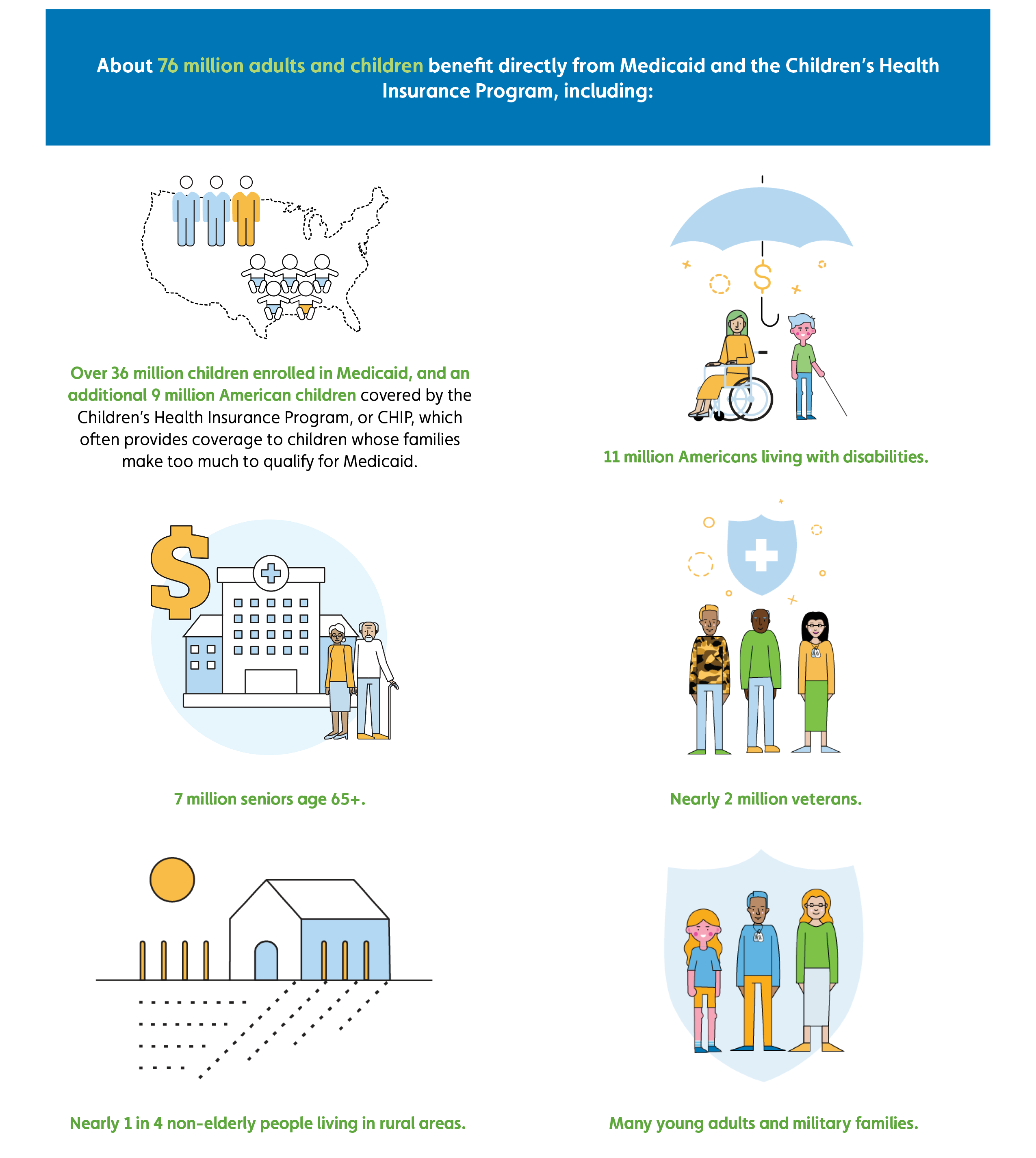Medicaid is an essential part of American health care. It helps improve the health and financial security of millions of Americans every day, including more than 2 million veterans.
Medicaid provides health coverage for individuals and families who live below certain income levels, and is the largest health care program in the country, covering about 1 in 5 Americans.
The Medicaid program was signed into law in 1965, alongside Medicare. At its inception, the program was created to protect the health and well-being of millions of U.S. families, save lives, and improve American economic security. The modern Medicaid program – overseen by the Centers for Medicare and Medicaid Services (CMS) within the Department of Health and Human Services (HHS) – still strives to achieve those same goals.
Medicaid is funded through federal and state partnerships. States can design their own programs within federal rules to provide health care and social support services in a way that works best for their residents.
Some states administer Medicaid directly through their state Medicaid agencies, while 38 states and the District of Columbia choose to partner with private health plans to deliver benefits in what is known as Medicaid managed care. These Medicaid managed care programs – which serve two-thirds of enrollees (more than 55 million people) across the country – seek to streamline health care and save taxpayers billions of dollars by working directly with doctors, hospitals, nursing homes, pharmacies, and home and community-based service providers.
Medicaid coverage is available at little or no cost to enrollees and helps families in need access many kinds of vital services, including doctors, hospitals, nursing home care, and prescription drugs. It often covers additional benefits too, such as dental care, health education, and non-emergency medical transportation to doctors’ appointments.
Who Benefits from Medicaid

Eligible individuals can apply for and enroll in Medicaid at any time during the year, so the Medicaid program is there when Americans need it most.
Since the passage of the Affordable Care Act (ACA) in 2010, 37 states and the District of Columbia have increased access to health care coverage for more individuals through expansion of their Medicaid programs. When states choose to expand Medicaid, they receive additional federal financial support for expansion enrollees. To date, these expansion programs have resulted in an additional 13 million Americans gaining coverage across the country.
Medicaid Outcomes and Support
Medicaid coverage has been credited with many positive health improvements and outcomes, including:
- increased access to care
- improved self-reported health status
- higher rates of preventive health screenings
- lower likelihood of delaying care because of costs
- decreased hospital and emergency department utilization; and
- decreased infant, child, and adult mortality rates.
There is also growing evidence that some states that expanded Medicaid through the ACA are experiencing greater gains in health outcomes than states that have not expanded Medicaid.
In the opinions of most Americans, Medicaid is a valuable program for the country. The program is viewed favorably by 72% of Americans once they learn more about the program, and fewer than 10% of Americans say they want to see cuts in federal Medicaid funding. About 85% of Americans enrolled in Medicaid managed care say they are satisfied with their coverage, which is higher than those with traditional Medicaid.